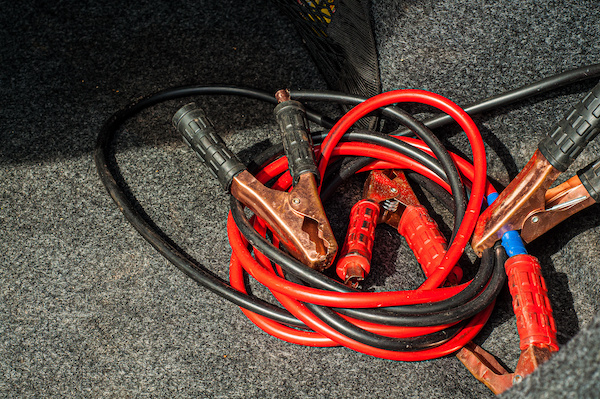Posted on 12/8/2021

In this modern-day and age, it's not uncommon for people to want to pick up a side hustle. Especially with the holidays around the corner, you can make some extra cash working for Uber or Lyft. While your employment status may be approved, these rideshare companies need to ensure that your vehicle is safe enough for their customers to ride in. Both companies require their drivers to present a passed vehicle inspection annually to ensure you're providing safe and responsible trips. Here's what a typical Uber or Lyft inspection checks for: Body - The car's body should be free of damage. Doors - All doors on the vehicle must open and close from the inside and outside. Seats - The front seat of the automobile must be adjustable. Seat Belts - Each vehicle must possess at least five seat belts, and they must be in working condition. HVAC - Your air conditioning and heating system must be fully functional. Windows - The car windows must be working and not cracked o ... read more
Posted on 11/5/2021

Are you planning on bringing your cat or dog home for Thanksgiving dinner? If you plan on taking your furry companion with you, please make sure you plan ahead to ensure your pet's safety. Most of us will be stressed enough trying to tackle the holiday traffic, so we want to do as much preparation beforehand as possible. You're going to need to do some additional planning and packing: Fasten your pet properly for the journey ahead - Your furry friend's safety should be a top priority. Your pet should be in a secured and comfortable area of your vehicle. Many owners will leave their pets unrestrained in the car, but that is an awful idea. In situations where you might leave a window open, your cat or dog could accidentally slip out. Or you might have to brake last minute and send your friend flying from one end of the car to the other. Bringing a kennel or some sort of gear to keep your furry friend secure in one place is the move. Don't forget the pet essentials ... read more
Posted on 10/4/2021

Keeping a stash of emergency items in one place in your vehicle can be very beneficial for you and others in dire situations. Most of these items will be useful in unanticipated circumstances. Millions of car accidents and breakdowns happen every year. And to be frank, many of them often result in injuries and even death. With simple tools, items, or even non-perishable food on hand, it can do as much as save a life. You can minimize the stress of this ever happening to you by carrying a bag of necessities. Now, you can do your part by organizing and collecting them! Durable bag to store supplies No-spill gas can (2-5 gal.) Flashlight Batteries Compass Jumper Cables Jump Starter - Portable power bank for car, phones, and other electronics Antifreeze Bottle of Washer Fluid First Aid Kit Tire Pressure Gauge Spare Tire and Jack Fix-A-Flat Can or Air Compressor Bungee Cords Small Foldable Shovel Multi-tool or Small Tool Kit Heavy-Duty Gloves Cable Ties Duct Tape Reflec ... read more
Posted on 9/7/2021
.jpeg)
Your brakes are essential for your vehicle and your safety. However, most people neglect their brake system when it comes to proper maintenance. For example, you should always make sure you have enough brake fluid in your car. Without brake fluid, your vehicle will not be able to come to a complete stop. In other words, your brakes depend on this particular solution to perform their job correctly in many conditions. There are several types of brake fluid you should know. Here are the five different types of brake fluid and their characteristics: DOT 3 - This type of brake fluid is glycol-based and has been used for a very long time. It is a rich amber color, and it is known to have the lowest boiling point. DOT 4 - DOT 4 has become more widely used by vehicle manufacturers, but it is used mostly by European car manufacturers currently. It is a glycol-based solution but has a higher boiling point than DOT 3. It also costs more than DOT 3. DOT 5 - This type of brake fluid is dif ... read more
Posted on 8/3/2021

Distracted driving is the most common cause of horrific and deadly car collisions. From digging for something you dropped to sipping on coffee to checking your phone, they're all considered hazardous activities while driving. As a conscientious driver, you should refresh your understanding of distracted driving and take these tips to improve your driving habits and focus on the road! Cell Phone As you can probably guess, your phone is the biggest distraction out there. Because phones are a leading cause of vehicle accidents and fatalities, most states have enforced laws to restrict texting and phone calling while driving. We recommend enabling "Do Not Disturb" mode and leaving your phone out of your sight whenever you get behind the wheel to go. Control Systems Finding your favorite song is a difficult job when running a vehicle. It may seem natural for you, but research suggests that it's a common cause of traffic accidents. It would be best ... read more